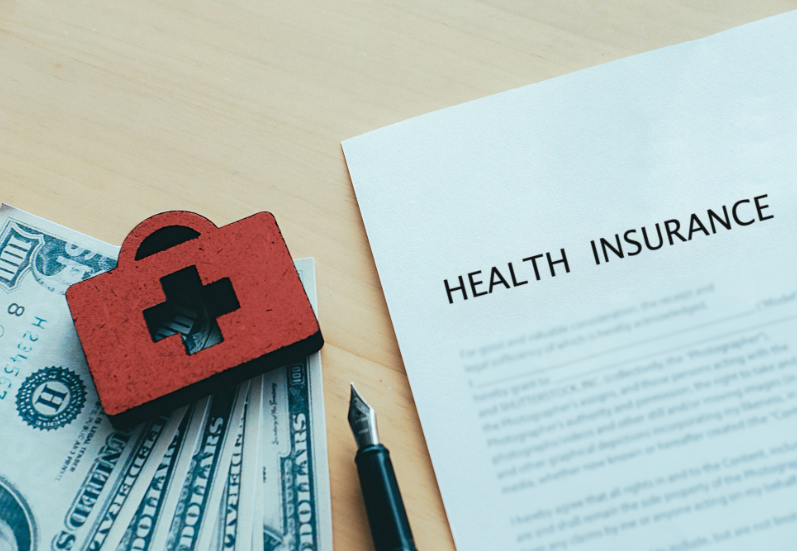
Trying to file a disability insurance claim might be definitely challenging, especially if you are already suffering from a serious injury or illness.
On the other hand, a clear understanding can definitely simplify the process and even give you a higher chance of winning.
Being aware of the process can save you from committing errors and experiencing unnecessary waiting time, whether you are applying for short-term or long-term disability benefits.
But how can you win the claim? And what are some of the things that you should consider, and how to react if it is rejected?
Hi. In today’s blog, these are some of the things that I will be talking about. So, if that’s what you want to know, keep on reading till the end, and thank me later…
What Is A Disability Insurance Claim?
By a disability insurance claim, a policyholder makes a request to the insurer to pay benefits under a disability insurance policy for a job loss caused by an accident or illness.
Disability insurance is a plan that aims to compensate you partly for the loss of your job if a condition makes it impossible for you to perform your work.
These claims may be of short duration or long duration, depending on the seriousness and the estimated length of the disability.
When filing a claim, you have to indicate that the illness you have is in accordance with the policy’s conditions of disability.
The evidence may mostly be as follows:
- Medical records
- Physician statements
- Employment documentation
- Proof of income and tax returns
The insurer will compare your statements with the policy and decide whether you are eligible to receive the benefits.
There exist two main types of disability insurance:
- Short-term disability insurance: It usually covers disabilities lasting from no more than a few weeks to a couple of months.
- Long-term disability insurance: Guarantees the replacement of income even for a long period, such as retirement, if you cannot return to work.
It is extremely important that you cover the long-term consequences of work injuries. This process can be quite challenging.
Why? Well, that’s because it often requires meeting specific deadlines, completing detailed forms, and other tasks.
You need to keep records of what has been happening as well as give information about your health condition at regular intervals to get a positive result from your claim.
In case the claim is not approved, you do have the right to challenge it. Nevertheless, you need to be aware of the process so that you do not get caught up during this time.
How To File A Disability Insurance Claim
When filing for disability benefits, you must follow all the necessary steps to avoid delays or denials. Since this insurance allows you to seek financial support if you cannot work due to a long-term disability, here are the steps to filing a claim.
Review Your Policy
Always try to file a claim for disability insurance only upon having reviewed your policy very carefully to understand the following:
- What cover is provided.
- What’s the waiting period.
- Which documents should you submit.
This indeed is the best way to take along all the requirements and be on time.
Being aware of the policy terms and conditions will equip you to act accordingly and avoid the occurrence of troubles during the claims process as well as have a more comfortable experience.
Gather Important Documents
To file a disability insurance claim, just collect essential documents such as medical records, physician statements, employment history, and your insurance policy.
These documents not only serve as evidence of your illness and work status but also provide the most accurate paperwork, which strengthens your position with the insurer and facilitates quick evaluation.
Notify Your Insurer
Notify your insurer immediately after you get injured, as most policies have strict deadlines for filing a claim.
Make sure to get in touch with the insurance company via the most direct channel whether that is straight to them or through your employer and ask for the claim forms that are needed.
Earlier notification serves as the start of the process; it represents your good faith and hence, prevents any unnecessary delay or rejection.
Complete The Claim Form
Be very particular when you fill the disability insurance claim form and supply only the truthful details about yourself, your medical history, and your job.
Explain your condition clearly and its effect on your ability to work. Accuracy and completeness are very important because they will avoid delays in processing or rejection at the decision stage.
And of course, make sure that you have thoroughly checked all the parts before you send the form.
Submit Supporting Documents
Submit all the required supporting documents with your claim, including your medical records, doctor’s evaluations, test results, and employment verification.
These documents validate your disability and help the insurer assess your eligibility. Ensure everything is updated and clearly labeled to avoid processing delays.
Cooperate With The Insurer
Cooperate fully with your insurer throughout the claims process by quickly responding to requests for information, attending medical exams, and providing updates on your condition.
Open communication builds trust and ensures your claim is processed efficiently. Lack of cooperation can potentially affect your benefits.
Follow Up On The Claim
Follow up frequently on your disability insurance claim to track its progress and handle any problems quickly.
Contact your insurer to confirm receipt of documents and inquiries about timelines. Staying proactive helps in a lot of ways. It:
- Prevent delays.
- Keeps you informed.
- Demonstrates your commitment to securing your benefits.
What To Consider When Filing A Disability Insurance Claim
Filing a disability insurance claim is quite different from other types of personal injury claims. Since it involves requesting assistance if you’re unable to work, you must consider several unique factors during the process. Let’s discuss some of them.
Always Do Your Investigation
Always conduct your investigation when filing a disability insurance claim. Work to achoeve the following things:
- Understand your policy’s terms.
- Determine your rights.
- Verify any information you receive from your insurer.
Being informed helps you identify inconsistencies and ensure that you’re treated fairly throughout the process.
Avoid Making Mistakes On Your Claim Form
Avoiding mistakes on your claim form is important when filing a disability insurance claim because errors, omissions, and inconsistencies can cause delays or denials.
In order to increase your chances of a seamless approval, do the following things:
- Carefully go through each section.
- Provide accurate information.
- Double-check any supporting documents.
Prepare For A Denial
Always prepare for the possibility of denial when filing a disability insurance claim. Even valid claims can be rejected due to insufficient documentation or technicalities.
In order to do that, you must:
- Learn your appeal rights.
- Gather strong evidence.
- Stay ready to respond quickly.
Work With The Right Disability Lawyer
It is possible to greatly enhance the likelihood of your success in a claim by employing the services of a suitable attorney.
For example, Eric Buchanan and Associates are experienced lawyers who can still assist you if you have been refused your disability benefits.
They can provide you with the legal guidance that you need through the process of complicated forms and speak on your behalf.
What To Do If Your Disability Insurance Claim Is Denied
In the case when your disability insurance claim is rejected, please do not panic!
Instead of running into a blank, read the letter of refusal thoroughly to find out what the reasons are.
Work from there to collect some extra proofs, like re-issued medical papers and statements of experts, which will substantiate your case.
Almost always, you have the right to file an appeal. Therefore, do so within the prescribed time frame.
Probably it is a good idea to hire a lawyer to assist you during the whole appeal process as well as to make sure you will be given the benefits that are rightfully yours.
Read More:
- The Importance of Police Reports in Car Insurance Claims
- How to Collect Evidence for a Strong Personal Injury Claim
- What Compensation Can You Claim After a Truck Accident?











0 Reply
No comments yet.